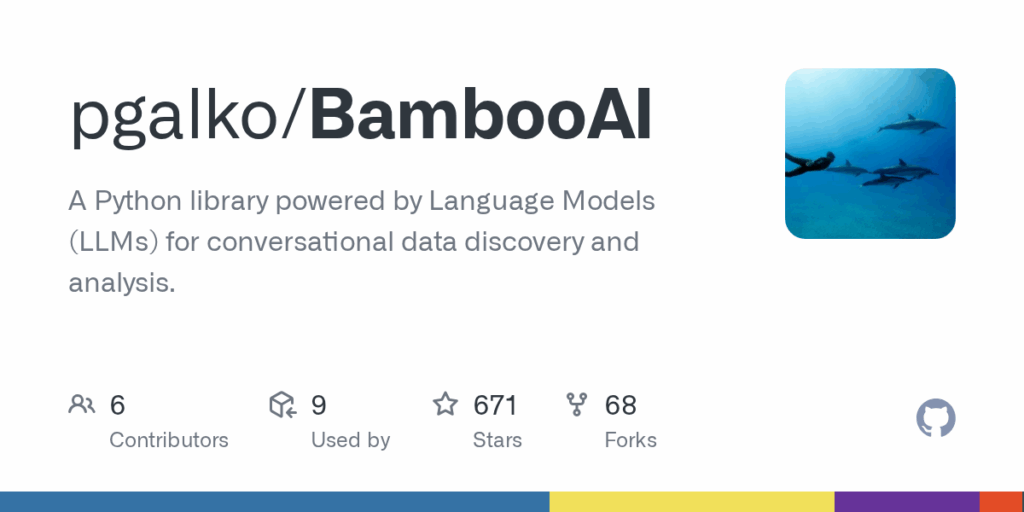BambooAI
Basic Information
BambooAI is an open-source Python library and multi-agent system designed to let users interact with tabular and external data using natural language. It provides conversational data analysis by classifying user questions, routing them to specialized agents, generating Python analysis and visualization code, executing that code, and returning formatted results. The project supports both interactive use in Jupyter/CLI and a web UI, and can be run locally, with Docker, or as a pip package. It is intended for analysts and developers who want to augment or automate data exploration, cross-reference auxiliary datasets, integrate web search and APIs, and persist successful solutions in a vector store. Configuration is driven by an LLM_CONFIG.json and environment variables for model and service credentials.








